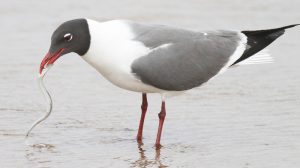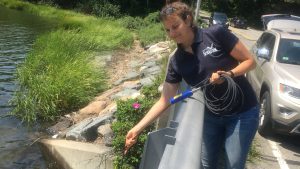Search results for: sites%20that%20offer%20cheap%20airline%20tickets%20phone%20number%201-800-299-7264
Rhythmic Beach Cusp Formation: A Conceptual Synthesis
Rhythmic Beach Cusp Formation: A Conceptual Synthesis Seymour, R.J. and D.G. Aubrey Marine Geology, Vol. 65, pp. 289-302, 1985 WHOI-R-85-017
Read MoreFunded Projects by Research Focus Areas
Research Focus Areas Healthy Coastal Ecosystems Issues related to healthy coastal ecosystems on the coast of Massachusetts and in Northeastern U.S. are similar to those issues experienced in other areas of the U.S. coastline. Sustainable Fisheries and Aquaculture Woods Hole Sea Grant has identified the revitalization of our nation’s fisheries and sustainable aquaculture as priority…
Read MoreRiver Herring Network Update
Each spring river herring come from the ocean and swim, or “run” up rivers to spawn in ponds and slow sections of rivers. Each fall, Massachusetts river herring wardens gather together to talk about their favorite fish and discuss ways to preserve it. For hundreds of years, people used to gather herring at their local…
Read MoreThe Little Fish with a Big Impact
In the Gulf of Maine, there’s a little eel-like fish not much bigger than a large pencil, that buries itself in the sand in the summer and swims up and down in the water column in the spring and fall. It’s called a sand lance and it’s incredibly important to the ecosystem of the Gulf of Maine. If you like whale watching, this little fish is the biggest reason you might or might not see a whale:
Read MoreCoastSnap
Becoming a beach scientist is a snap. Share your photos from iconic beaches to help us better understand and manage our dynamic coast. Next time you are at one of our CoastSnap locations, become a scientist for the day by helping us measure how our beaches change over time. What is CoastSnap? CoastSnap is a…
Read More2018 MVCC
Martha’s Vineyard Coastal Conference June 6, 2018 Harborview Hotel, Edgartown, Mass. Keynote A Perfect Storm: The Collision of Hurricanes, Climate Change and Coastal Population Growth Jeff Donnelly, Woods Hole Oceanographic Institution (WHOI) Coastal Research Storm-induced Shoreline Changes on Martha’s Vineyard Steve Elgar and Britt Raubenheimer, Woods Hole Oceanographic Institution (WHOI) Research on Migration and Burial…
Read MoreMarine Nonfuel Minerals in the U.S. Exclusive Economic Zone: Managing Information as a Resource
Marine Nonfuel Minerals in the U.S. Exclusive Economic Zone: Managing Information as a Resource Broadus, J.M. and P. Hoagland Ocean and Shoreline Management, Vol. 13, No. 3 & 4, pp. 275-294, 1990 WHOI-R-90-023
Read MoreWHOI-W-05-001 Whitlach, B. International Inv
WHOI-W-05-001 Whitlach, B. International Inv
Read MoreSea Grant Participates in First Northeast Water Quality Monitoring Blitz
More than 50 water quality monitoring groups from Long Island Sound to Downeast Maine participated in Shell Day – a water sampling “blitz” along the New England coast to capture a snapshot of coastal acidification conditions. Held August 22, 2019, this citizen science collaboration raised awareness …
Read More2002-2004 Projects
Development of a Carbon Isotopic Method for Quantifying Groundwater Inputs to Estuaries Daniel C. McCorkle, Woods Hole Oceanographic Institution The contribution of groundwater to the coastal ocean and to estuaries is not well understood, primarily due to the difficulties associated with identifying and distinguishing between groundwater inputs and other freshwater inputs, such as surface river…
Read More

